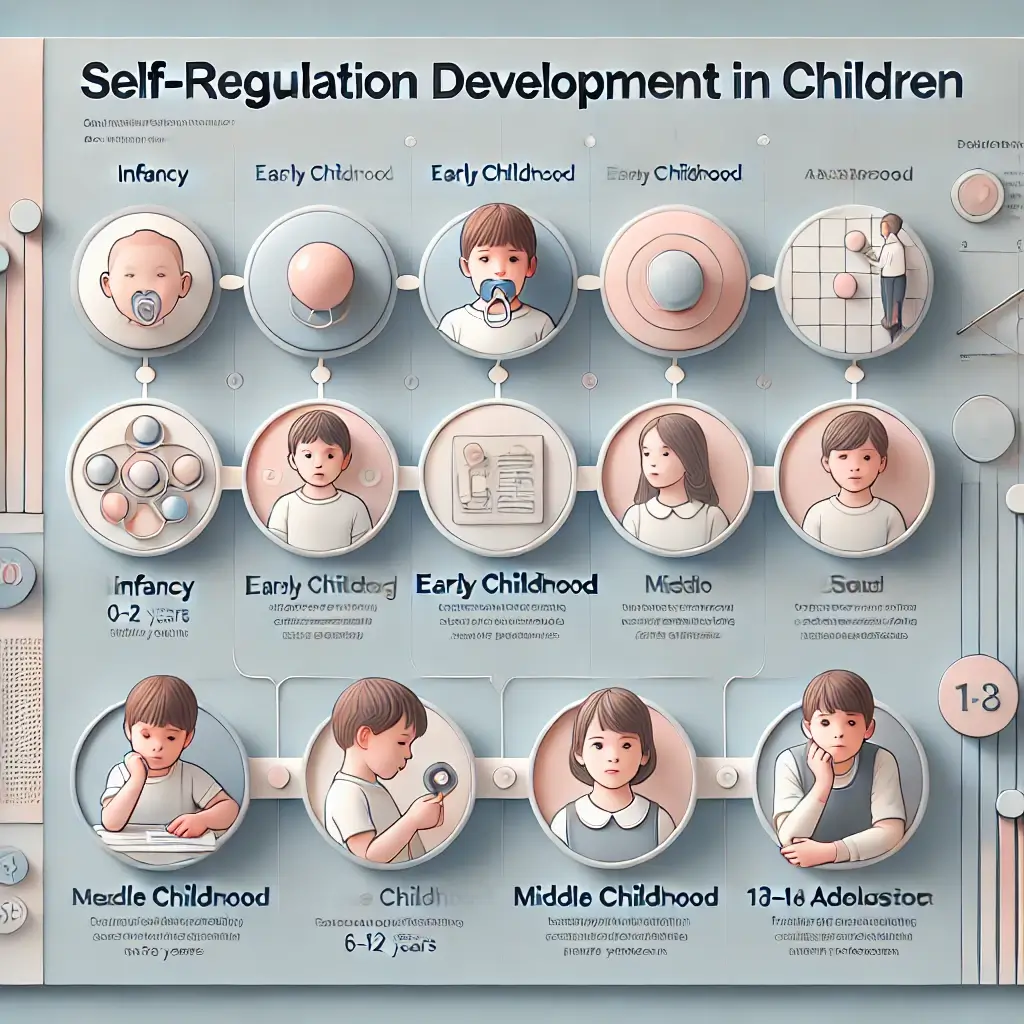Understanding Self-Regulation Development
Self-regulation, the ability to manage emotions, thoughts, and behaviors in alignment with situational demands, is an essential skill that develops over time. It is foundational to a child’s academic success, emotional well-being, and interpersonal relationships. Without effective self-regulation, children may struggle with impulsivity and emotional instability. Understanding the stages of self-regulation development can help parents, educators, and healthcare professionals provide appropriate support at critical junctures.
Research Findings and Statistical Impact
Developmental neuroscientist Dr. Rebecca Chen describes self-regulation as a predictable yet highly individualized process. According to a 2024 study in the Journal of Child Development, children with robust self-regulation skills by age 10 are 60% more likely to achieve academic success and 45% more likely to establish positive social relationships. Another landmark study, tracking 4,000 children from birth to age 15, found that structured support in self-regulation development resulted in a 55% reduction in behavioral challenges and a 40% improvement in emotional resilience (Pediatric Neurology Research, 2024).
The Importance of Developmental Recognition
These findings underscore the importance of recognizing developmental milestones and implementing evidence-based interventions tailored to each stage of a child’s growth. From infancy to adolescence, self-regulation involves a complex interplay of emotional, behavioral, and cognitive processes, each with unique developmental markers.
Early Development: Birth to Age 2
During infancy and toddlerhood, children begin developing basic self-regulation skills. By six months, approximately 85% of infants demonstrate self-soothing behaviors such as thumb-sucking or rocking. By 18 months, 75% of toddlers exhibit early forms of impulse control, such as pausing before touching a forbidden object.
Key Early Development Milestones
Key developments in this stage include: Emotional Regulation: Infants begin to self-soothe and express basic emotions. By two years, they can identify emotions like happiness and sadness in others. Behavioral Control: Toddlers start following simple instructions and engaging in focused attention for short periods.
Preschool Development: Ages 3-5
Preschool years mark significant progress in emotional control and social interactions. According to a 2024 report in Child Psychology Review, 90% of children by age five can manage simple delays such as waiting for their turn during play.
Middle Childhood Development: Ages 6-12
During middle childhood, self-regulation becomes more sophisticated, encompassing complex emotional and cognitive processes. At this stage, 95% of children demonstrate advanced emotion management and metacognitive skills, allowing them to reflect on their own thinking processes (Adolescent Development Quarterly, 2024).
Adolescent Development: Teen Years 13-18
Adolescence is characterized by the refinement of abstract problem-solving, long-term planning, and emotional regulation. These skills are essential for navigating the complexities of teenage life, including academic challenges, social relationships, and preparation for adulthood.
Research-Based Intervention Strategies
Recent studies highlight the role of consistent support and structured environments in fostering self-regulation at every stage. Schools that implemented self-regulation-focused curriculums reported a 30% reduction in behavioral issues and improved academic performance, emphasizing the importance of targeted interventions (Child Development Quarterly, 2024).
Concluding Insights on Self-Regulation Development
Self-regulation is a cornerstone of lifelong success, developing through a series of predictable yet individualized stages. By understanding the timeline of self-regulation and implementing age-appropriate interventions, caregivers and educators can significantly impact a child’s emotional and behavioral development. As studies reveal, structured support can enhance emotional resilience by 40% and reduce behavioral challenges by 55%.

